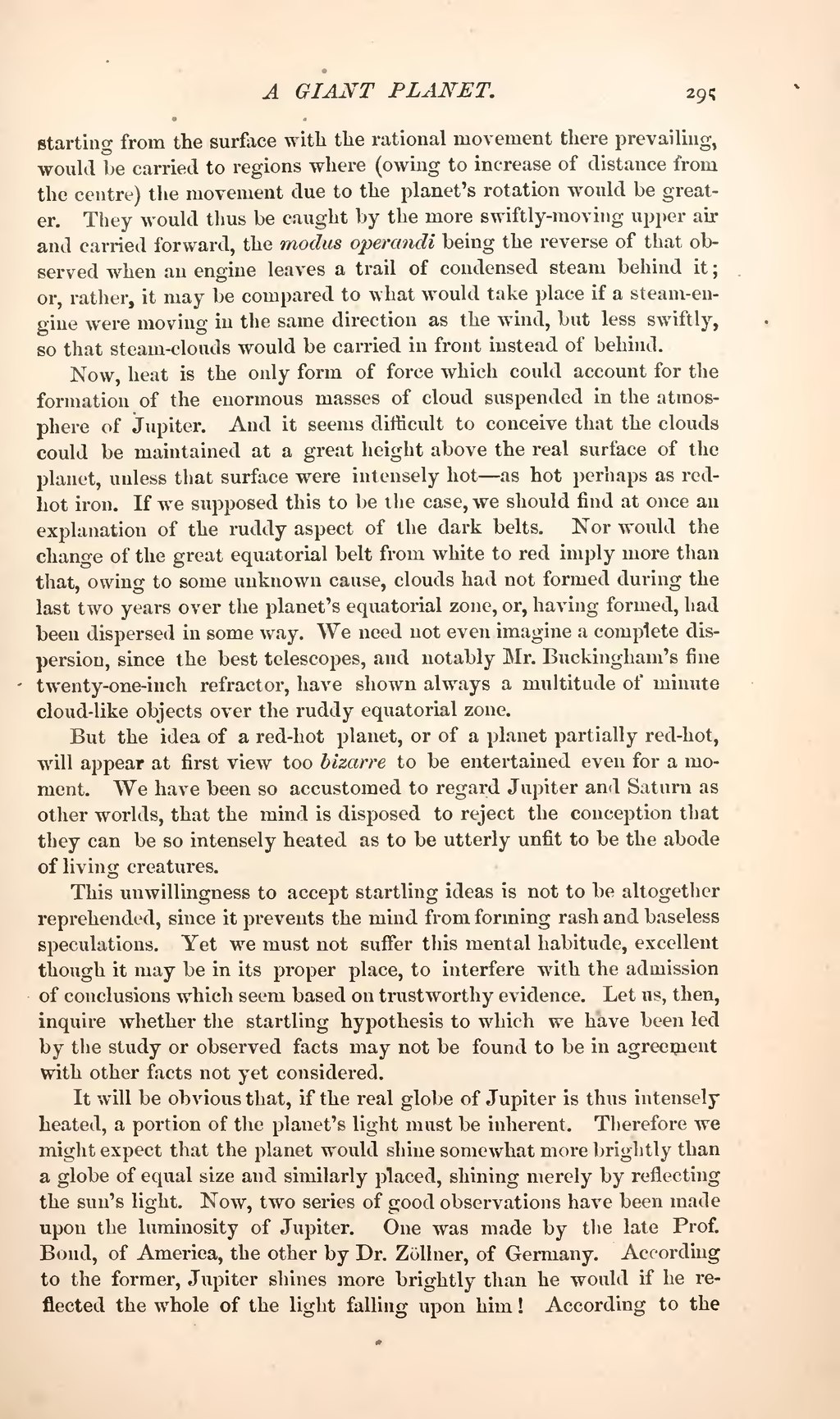starting from the surface with the rational movement there prevailing, would be carried to regions where (owing to increase of distance from the centre) the movement due to the planet's rotation would be greater. They would thus be caught by the more swiftly-moving upper air and carried forward, the modus operandi being the reverse of that observed when an engine leaves a trail of condensed steam behind it; or, rather, it may be compared to what would take place if a steam-engine were moving in the same direction as the wind, but less swiftly, so that steam-clouds would be carried in front instead of behind.
Now, heat is the only form of force which could account for the formation of the enormous masses of cloud suspended in the atmosphere of Jupiter. And it seems difficult to conceive that the clouds could be maintained at a great height above the real surface of the planet, unless that surface were intensely hot—as hot perhaps as red-hot iron. If we supposed this to be the case, we should find at once an explanation of the ruddy aspect of the dark belts. Nor would the change of the great equatorial belt from white to red imply more than that, owing to some unknown cause, clouds had not formed during the last two years over the planet's equatorial zone, or, having formed, had been dispersed in some way. We need not even imagine a complete dispersion, since the best telescopes, and notably Mr. Buckingham's fine twenty-one-inch refractor, have shown always a multitude of minute cloud-like objects over the ruddy equatorial zone.
But the idea of a red-hot planet, or of a planet partially red-hot, will appear at first view too bizarre to be entertained even for a moment. We have been so accustomed to regard Jupiter and Saturn as other worlds, that the mind is disposed to reject the conception that they can be so intensely heated as to be utterly unfit to be the abode of living creatures.
This unwillingness to accept startling ideas is not to be altogether reprehended, since it prevents the mind from forming rash and baseless speculations. Yet we must not suffer this mental habitude, excellent though it may be in its proper place, to interfere with the admission of conclusions which seem based on trustworthy evidence. Let us, then, inquire whether the startling hypothesis to which we have been led by the study or observed facts may not be found to be in agreement with other facts not yet considered.
It will be obvious that, if the real globe of Jupiter is thus intensely heated, a portion of the planet's light must be inherent. Therefore we might expect that the planet would shine somewhat more brightly than a globe of equal size and similarly placed, shining merely by reflecting the sun's light. Now, two series of good observations have been made upon the luminosity of Jupiter. One was made by the late Prof. Bond, of America, the other by Dr. Zollner, of Germany. According to the former, Jupiter shines more brightly than he would if he reflected the whole of the light falling upon him! According to the
